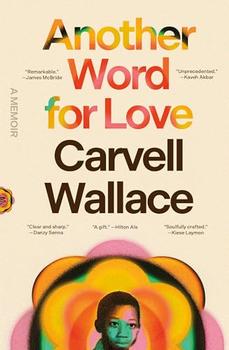Summary | Excerpt | Reviews | Beyond the Book | Readalikes | Genres & Themes | Author Bio

A Memoir
by Carvell WallaceThe Quiet
We had been homeless for about a year. We never slept on the street; mostly we bounced from one temporary living situation to another with the occasional night in a motel or a car. Some of these situations were fine. Some were not. Maybe it was less than a year but it felt like a long time, full of endings and tiny deaths.
I was seven and a half years old, almost eight. We eventually found an apartment in Virginia, which I could tell meant a lot to my mother. There was one bedroom, a small patio, a kitchen, and a sunken living room, which I guessed was a thing to be coveted by the reverence with which these words—"sunken living room"—were spoken.
I remember the days in that apartment as lonely ones. It was just the two of us. The afternoons were long and quiet. We had no furniture, save for a bunk bed and a rocking chair whose lengthening shadow would spread across my body as I lay on the empty carpet while afternoon turned to night and my mother slept like she had briefly died. We had just come through a chaotic period of homelessness and now we had a place. We were tired, but our safety here was flimsy. I knew even then that eventually we would lose this place like we lost all others. We were like survivors of a shipwreck who had washed ashore onto a deserted island. We had made it, but for how long?
Food was not guaranteed. Sometimes I ate from a stick of butter when I was hungry. It gave me a headache, but I also loved the warm recklessness of it, putting something slick and salty in my mouth, a forbidden overflow of flavors that almost made me nauseated, but not quite. Other times there were restaurant leftovers. I knew my mother went on dates to get takeout for us, and I was grateful whenever I saw a noisy, oversize Styrofoam container in the fridge. Cold salty half-chewed steaks, gummy fries, rock-hard cakes, and chewy slices of garlic bread. It was like eating from a very nice trash can. I gorged myself whenever I could.
Maybe I first began to contemplate death in those afternoons of lengthening shadows. The TV would be on; the final credits would be rolling on some made-for-TV action movie. My mother would be dead to the world. I would be alone with night advancing. I would feel trapped in a space between awake and sleep, between life and death, that I found intoxicating and terrifying. It was as if I was in the presence of a holy truth: the Ending of Things, the Encroaching of Shadows; the Quiet Death of a Temporary Suburban Apartment Complex at Dusk.
But wait. Maybe that is just how I made sense of things later, after I grew up and got away from there, turned myself into a poet and writer, someone who, for whatever reason, can't resist weaving stories out of aching trails of hurt and long serpentine shadows across an empty carpet floor. Maybe what I experienced then was a feeling of abandonment that shook me to my core, made me want to cry, made me feel useless, like refuse and garbage. Maybe I just needed a hug. Maybe I just needed my mother.
It's hard to know anymore what's what. I guess that's what time does, changes the meaning of things. I try not to bother too much about figuring out which truth is the truest. A lot of things, I have learned, can be true at once. That is how I have survived.
Excerpted from Another Word for Love by Carvell Wallace. Copyright © 2024 by Carvell Wallace. Excerpted by permission of MCD. All rights reserved. No part of this excerpt may be reproduced or reprinted without permission in writing from the publisher.
Your guide toexceptional books
BookBrowse seeks out and recommends the best in contemporary fiction and nonfiction—books that not only engage and entertain but also deepen our understanding of ourselves and the world around us.